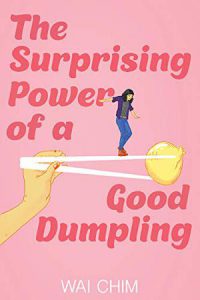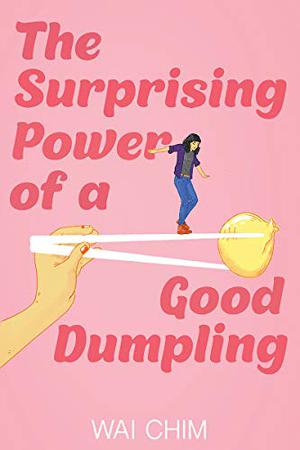 Set in Ashfield, Australia, The Surprising Power of a Good Dumpling by Wai Chim features the story of the Chiu family and the challenges they face with a mother who endures mental illness and a “wrapped-up-blanket sadness” (58). Anna (16), Lily (14), and Michael (6) watch for signs that mark good days and bad days and dread the days when Ma has a psychotic episode.
Set in Ashfield, Australia, The Surprising Power of a Good Dumpling by Wai Chim features the story of the Chiu family and the challenges they face with a mother who endures mental illness and a “wrapped-up-blanket sadness” (58). Anna (16), Lily (14), and Michael (6) watch for signs that mark good days and bad days and dread the days when Ma has a psychotic episode.
Their father, who knows the work ethic of a provider, immerses himself in his work at the Jade Palace, a Chinese restaurant that he owns in a distant city. Because Baba rarely comes home, preferring to sleep on the cot in his office and to avoid the truth of his wife’s breaks with reality, his children are left to cope on their own.
Living under the influence of Ma’s rules and fears, there are “no parties, no sleepovers, or any real socializing outside of school and family. The normal kid stuff. It was just family, restaurant, study, Ma’s moods, and Chinese stuff” (20). Despite the rules and pronouncements that money is not to be squandered on jewelry, beauty products, or enrichment activities, Anna and Lily explore developmental boundaries and form friendships. But they soon realize that “friendships are easy when it’s just about play, But when we get older, they become about favors, support, and status” (21).
Anna, who loves the organized chaos of the kitchen, escapes into cooking. “The methodical processes of chopping, gutting, boiling, and steaming combined with creativity and craft is like a cool salve to [her] burning soul” (39). Despite the rigor of the work, she also enjoys the predictability and how everyone has an established role.
While working at the Jade Palace, she meets Rory Smalls, and so begins a friendship that turns into something more. The two have interesting conversations about what it means to be racist, as if there is “some right way to be Chinese and not Chinese” (107) or to be bad Chinese or a bad white person. To Anna, “dumplings are the great social equalizer [since] so many cultures and communities have some version of meat wrapped in dough, with recipes handed down through generations” (108).
As this family navigates its challenges, together they learn that life is unpredictable and difficult and that sometimes love is “all-encompassing, nonsensical, and beyond our control” (283). They also learn to redefine normal. After all, “life isn’t some fairy tale or movie” (318). It is filled with challenges, where we all battle demons every day. If we’re lucky, we find friends who share their time, energy, and hearts to support and help us; “that’s not normal; that’s amazing” (318).
Another feature of Chim’s book is its use of the Jyutping romanization system for the Cantonese language. Anna Chiu, who was born in Hong Kong before her family emigrated to Australia, speaks and understands colloquial Cantonese but doesn’t know how to read or write the much more complex Chinese characters.
- Posted by Donna

